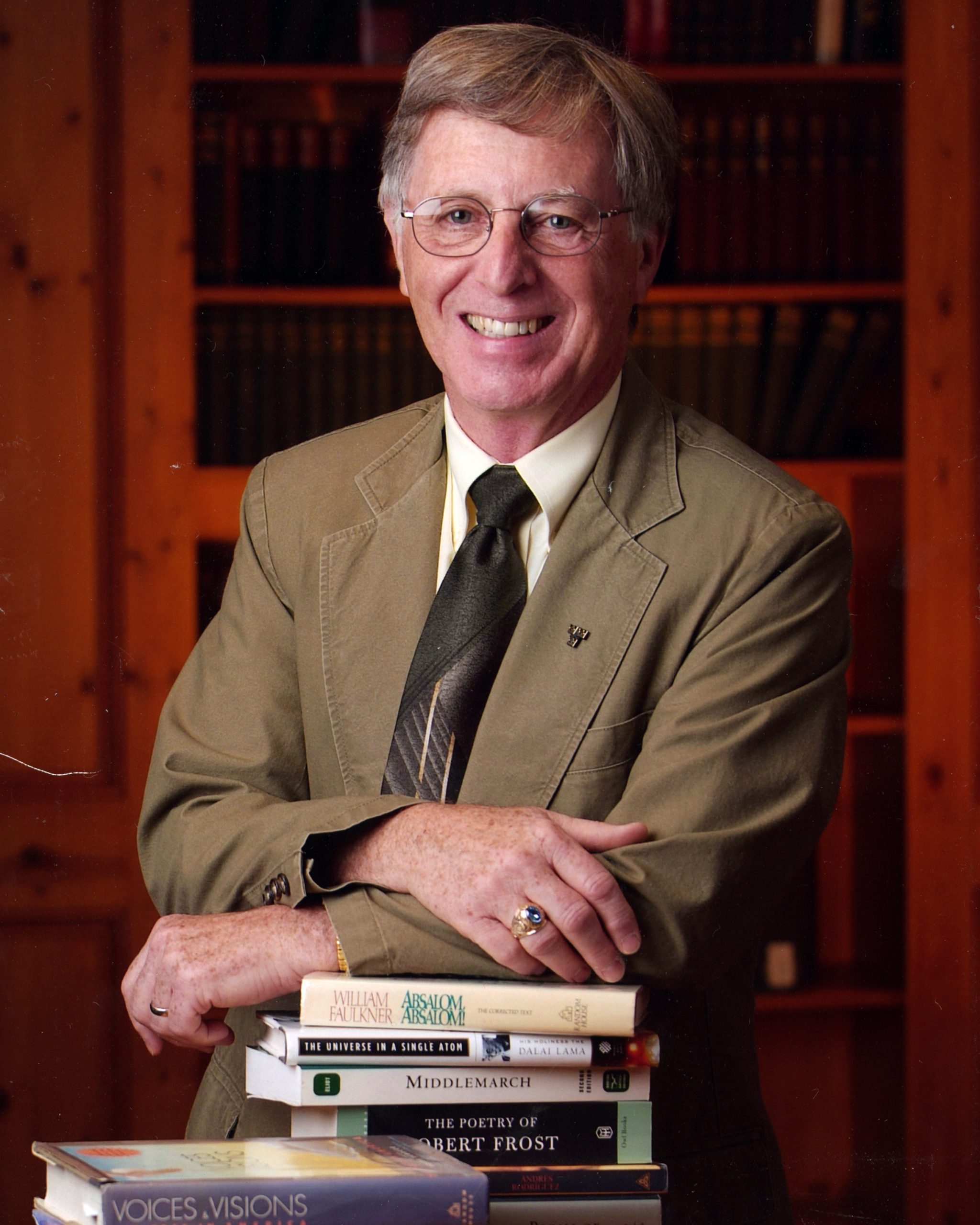Over the years, Carlson Award winners have been introduced using a variety of laudatory language. But how many of them have been compared by a colleague to “an aikido master?” This year’s winner can claim such a distinction. So, is the Carlson Award a Gustavus martial arts prize? Well, no, [but like a martial arts master,] the Gustavus faculty member who receives this award is one who has demonstrated exceptional skill and effectiveness as a teacher.
Each year the Carlson winner is selected by the past recipients of the award. This is indeed a daunting task, as literally dozens of Gustavus faculty members are nominated by students and colleagues each year. Many of those recommended for this award have a lengthy track record of being nominated year upon year. This year’s winner is certainly no exception to this pattern.
As the description of the Carlson Award states, the recipient should exhibit excellence in his or her discipline and succeed in generating enthusiasm, insight, and thoughtfulness in students. Again, this year’s winner is an example that illustrates a tradition. [Here is] what students say about this person: “inspiring and enlightening”…”An enthusiasm that permeates the class”…”Passionate about the details”…”encourages students to have big ideas.”
This faculty member’s Gustavus teaching career got off to perhaps a less than auspicious start. As a former student tells it, when she walked into [his] class on the first day of school, during his first year of teaching, he was sitting in one of the student desks rather than at the front of the classroom. The first thing she thought upon seeing him was, “Oh great, another freshman.” Despite this first impression, the class became one of her favorites at Gustavus and she still remembers it fondly these many years later.
And colleagues? What do colleagues have to say about this year’s winner? “Deeply self-reflective about teaching”…”His passion for what he does remains vibrant, as does his interest in stretching himself to try new teaching approaches or content.” Hear what one colleague has to say about the way he handles difficult conversations with students when discussing their assignments. “Usually these meetings are the typical discussion about paper content or writing style. But more than once in these meetings we have had students struggle inarticulately to describe their paper, or cry, or even become agitated about how hard the task is for them. The compassion that he brings to these situations is very inspiring. He listens carefully to what the students have to say, responds quietly, and asks careful questions-in short, he is completely present to the students at these times.”
I would like to say that this year’s Carlson award winner is “unique” but I am sure that this faculty member would correct my prose and inform me that in such a context the word “unique” is “a varmint and should be shot on sight.” Who is this Gustavus literary big game hunter? None other than Professor of English Claude Brew.
Take note of what another former student has to say about him. “The best lesson I learned…was about Claude himself. He showed by example what it means to be a truly good professor-someone who is committed to academic rigor, invested in his students, and devoted to his profession. He is not only an authority in his field, but he always makes time to listen to his students, and he is constantly re-imagining his lessons and re-reading material to make sure he can still bring a fresh perspective to something he has taught many times before. I have been privileged to know Claude as both a professor and a friend over the past few years, and those two roles often coincided.”
Claude received his Bachelor of Arts degree from Hamline University with majors in English and German. He went on to receive his M.A. and Ph.D. from Ohio University and subsequently joined the Gustavus faculty as an assistant professor of English in 1969. During his many years at Gustavus, he has taught courses on British literature, Hemingway, Faulkner, Shelley, Tennyson, literary interpretation, poetry, modem African fiction, modem war novels, and Russian fiction of the Soviet period, among others.
Claude’s scholarly work has dealt with Shelley, Faulkner, Emily Bronte, environmental literature, and the scholarship of teaching in his discipline. Additionally, Claude was the principal author of and served as the project director for a five-year development program funded by the National Endowment for the Humanities.
Finally, in addition to being a teacher-scholar, Claude has consistently been an active and vital member of the Gustavus community and has served in numerous formal capacities. But perhaps more important than any of these formal duties, Claude has served as a respected campus voice and a role model to other faculty. I count myself among that group who are grateful to have such a mentor.
Presented by Paul Saulnier
Professor of Physics
2006 Recipient of the Edgar M. Carlson Award

Leave a Reply
You must be logged in to post a comment.